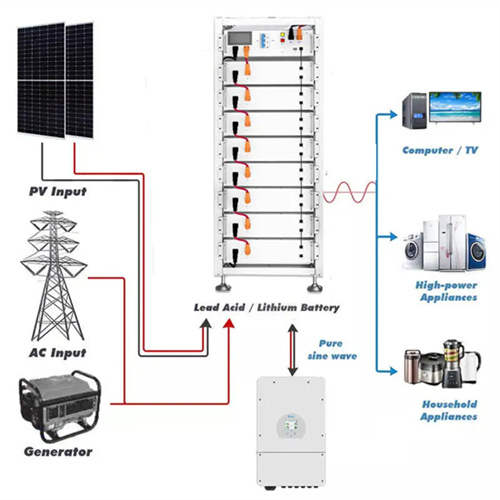Haiti energy storage subsidy policy
As the photovoltaic (PV) industry continues to evolve, advancements in Haiti energy storage subsidy policy have become critical to optimizing the utilization of renewable energy sources. From innovative battery technologies to intelligent energy management systems, these solutions are transforming the way we store and distribute solar-generated electricity.
6 FAQs about [Haiti energy storage subsidy policy]
What happened to fuel subsidies in Haiti?
Last week, the government of the small Caribbean island of Haiti took the advice of the IMF, WEF, and World Bank and announced the end of fuel subsidies. The result has been riots, looting, and chaos. A powerful gang leader used public outrage at the announcement to block a port and organize the overthrow of the government.
Why is Haiti struggling to modernise its energy sector?
Haiti’s recent battles to modernise its energy sector serve as a stark lesson for how fraught the business of energy transition can be. In the wake of the scandal, the struggle to provide Haiti’s 11 million people with reliable energy – and the desire to attract foreign investment to do so – has taken on an evermore politically charged hue.
Why is electricity so expensive in Haiti?
This leaves the country vulnerable to global oil price fluctuations, which directly impact the cost of electricity. Haiti also faces challenges in terms of lack of grid access, reliability of electricity service, and the prevalence of wood and charcoal fuels for home energy consumption.
Can private investment help solve Haiti's energy crisis?
“We have had this energy crisis for a long time, more than 20 years,” says Evenson Calixte, managing director of Haiti’s Autorité Nationale de Régulation du Secteur de l’Energie (ANARSE), the nation’s energy regulatory authority. “And we believe that one element that can help reform this sector is private investment.”
Does Haiti have electricity?
The electric utility for Haiti is Electricité d’Haïti (EDH). Though EDH technically holds monopoly rights for the provision of electricity, it contracts for power from a number of independent power producers (IPPs).4 The country’s 50% electrification rate by 2020. its neighbor to the east with which it shares the island of Hispaniola.
What challenges does Haiti face?
Haiti also faces challenges in terms of lack of grid access, reliability of electricity service, and the prevalence of wood and charcoal fuels for home energy consumption. The electric utility for Haiti is Electricité d’Haïti (EDH).

